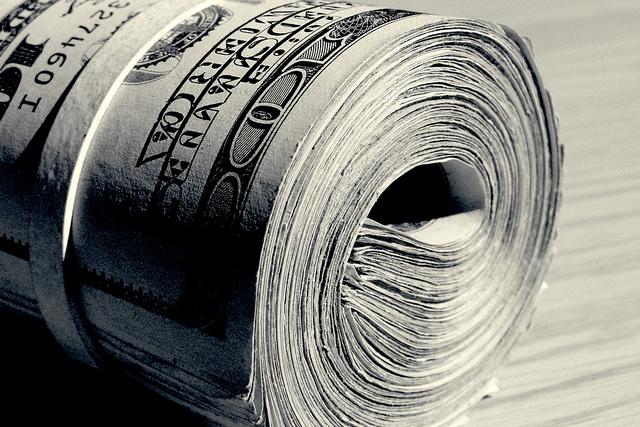
The Beat
Venezuela’s “worthless” 100-bolivar note
Venezuela’s Present Nicolas Maduro has announced that the 100-bolivar note will be taken out of circulation by 15 December, and replaced with new coins and bills ranging from 500 to 20,000 bolivars. The aim is to render the bills worthless to block transnational organised crime networks—who hoard the notes across the border in Colombia with the aim of destabilising Venezuela’s economy—from bringing them back into the country to be exchanged. Critics of the move say Venezuelans won’t be able to exchange the notes in time, particularly given the current inflation crisis and long queues at banks. (See India for a recent example of such chaos.) Central Bank of Venezuela data estimates that six million 100-bolivar notes—each worth about two US cents on the black market—are currently in circulation.
Printing a little too close to home
A 3D printer allegedly used to manufacture guns was seized in Melbourne police raids on an organised crime syndicate over the weekend. Thomas Birtchnell, an expert in 3D printing and manufacturing, suggests the group was trying to produce low-quality plastic handguns which represent a minimal risk. However, the real concern is whether 3D metal printing will become easily accessible by Australia’s crime networks. The printer was the second to be seized this year after a Queensland operation just last month.
CT Scan
A bloody Sunday in Cairo
25 people were killed and another 49 were wounded after a suicide bomber attacked a chapel adjacent to St. Mark’s Cathedral—Egypt’s main Coptic Christian cathedral—in Cairo on Sunday. According to reports, the blast occurred inside the chapel as Sunday Mass was ending and the majority of the victims were women and children. Egyptian President Abdel-Fatah al-Sisi denounced the attack and stressed that the government’s response to the attack would be ‘harsh’.
Bombings in Beşiktaş
A twin bomb attack outside of a football stadium in the heart of Istanbul killed 38 people and wounded over 160 others on Saturday. Kurdish militant group TAK—an offshoot of Kurdistan Workers’ Party—claimed responsibility for the attack. Their claim is given credence by the fact that the attack appeared to target Turkish police, which has been a hallmark of previous attacks by TAK.
Prison Break in Mali
A group of Islamist militants staged a daring raid on a jail in the Malian town of Niono last week. Five members of the Macina Liberation Front attacked the jail and freed 93 prisoners. So far only three of the prisoners on the lam have been recaptured.
Checkpoint
India’s unmanned borders
India is modernising security measures on the Indo–Pak border. Two years after the country’s Border Security Force (BSF) took the decision to install laser walls along the border, sources within BSF announced that by 18 December the technology would be installed at 41 infiltration hotspots. The new equipment will detect movement along the wall and transmit an exact location to BSF. Two weeks ago, BSF Director General KK Sharma announced plans to roll-out a ‘patrol-free, multi-layered smart fence’ along borders with Pakistan and Bangladesh, with ground troops acting in a rapid response capacity to disrupt terrorist infiltration. The project is due for completion in the second half of 2017.
Taliban Cartel
An economist has made the case for a shift in US drug policy, following a recent report indicating that opium production in Afghanistan has increased by 43%, despite the US government’s $12 billion worth of eradication efforts. According to economist Abigail Hall-Blanco, US policy has not only failed to curb drug exports, it’s bolstered the Taliban. Pushing opium into the black market has allowed the Taliban to profit from the illicit economy and also driven the 12% of Afghans working in the opium trade to turn to the Taliban for protection in exchange for a share of wages. Hall-Blanco advocates replacing prohibition with improved regulation of drug use, including funding for treatment and rehabilitation.
First Responder
Greenbacks and green energy
Bill Gates has launched a US$ 1 billion investment fund called Breakthrough Energy Ventures. The fund is designed to offer long-term funding cycles and tolerate high risk to invest in greenhouse emission reducing technologies across five sectors: electricity, buildings, manufacturing, transportation and food. Gates gathered a group of 20 of the world’s wealthiest investors and hopes to expand the fund which will be located amongst the concentration of venture capital firms on California’s Sand Hill Road. You can check out a handful of other investment strategies for clean technologies as outlined by the BEV here.
Aceh Shaken
A 6.5 magnitude earthquake hit Aceh province in Indonesia last week. It’s estimated that 100 people have been killed and 45,000 have been left homeless, and the province is continuing to suffer aftershocks. Indonesian rescue crews having been working with sniffer dogs to find those trapped in collapsed buildings. President Joko Widodo visited the region on Friday promising immediate rebuilding and cash stimuli for affected households. The Australian government has pledged AU$1 million in addition to temporary shelters, family packages and tarpaulins.